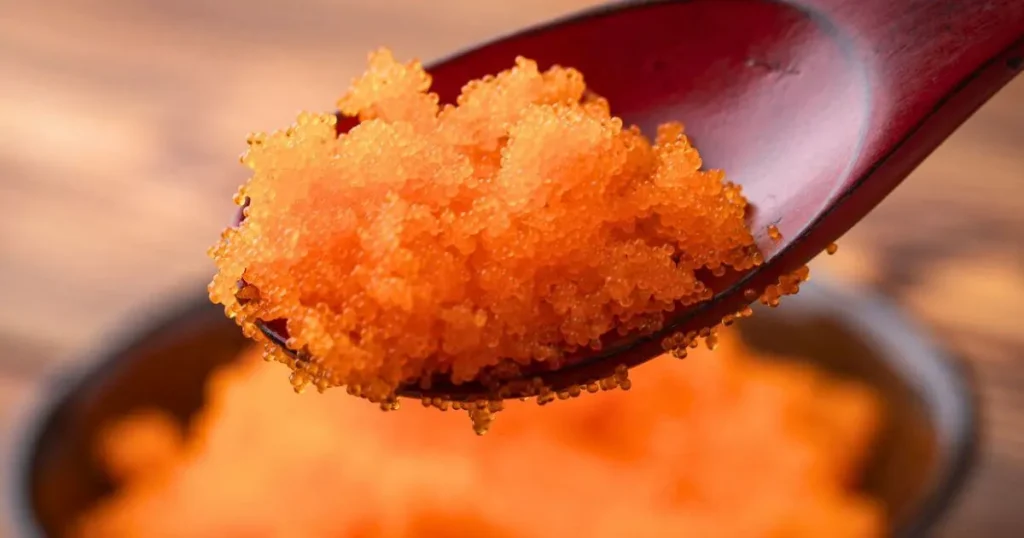Many people who are concerned about their health prefer seafood like cod, salmon, and tuna. Even though these fish are flavorful and nourishing, eating them every week can make them seem monotonous. You might have heard about swai fish when looking for a fun substitute.
This article explains nutritional benefits, potential concerns, and the larger conversation about the overall healthfulness of incorporating swai fish into your diet.
The Lowdown on Swai
Swai can be found in the rivers throughout the various regions of the Mekong Delta. Like its relative, swai can reach heights of 4 feet and weigh nearly 45 kg. Most swai sold in the US is made in Vietnam and shipped there frozen.
This fish is also farmed (rather than wild-caught) in Thailand, Nepal, Pakistan, India, Bangladesh, Laos, Myanmar, Indonesia, and Cambodia, according to Athena Davis, the Aquaculture Stewardship Council (ASC)’s North America marketing manager.
Hailing from the freshwater systems of Southeast Asia, swai fish, also known as basa, tra, or pangasius, is a mild-tasting catfish species. With a texture and flavor profile that has likened it to popular sea-caught varieties like cod and haddock, swai has become a favorite due to its versatility and affordability. Despite its mingling with the tilapia and salmon fillets in the frozen food aisle, little about swai’s nutritional prowess is known. Here, we unravel the story behind the fish that has captivated taste buds and pushed its way onto dinner plates across the globe.
The Nutritional Might of Swai
Swai isn’t just about taste and texture. It carries a significant nutritional punch, although perhaps less potent than other fish. Let’s break down the macronutrient and micronutrient content of the swai fish, making it a contender in nutrition.
Macronutrients: Finding the Balance
Regarding macronutrients, swai fish is a rich source of lean protein, making it a favorable option for those looking to increase their protein intake without the added fat. Each serving typically offers 15-20 grams of protein. It’s relatively low in fat, containing about 3 grams and 80-90 calories per 3-ounce cooked portion. However, the type of fat is worth noting. Swai fish includes a modest amount of healthy omega-3 fatty acids crucial in various bodily functions.
Micronutrients: Nutrient-rich, Lean Cuisine
Swai fish brims with essential vitamins and minerals. It’s a great source of vitamin B12, which is necessary for healthy nerves and energy synthesis. It’s also a good source of selenium, a powerful antioxidant. Phosphorus is integral to bone health; potassium, essential for heart health, is also present in meaningful quantities in this fish.
The Health Benefits of Embracing Swai
While swai might not be a nutritional powerhouse like salmon, it still boasts several health benefits that make it a brilliant addition to a balanced diet.
Omega-3 Fatty Acids: The Healthy Fats
Although swai is lower in omega-3 fatty acids than its oceanic cousins, it still contains a notable amount. These good fats have been associated with decreased heart disease risk, decreased inflammation, and improved brain function. Incorporating swai into your diet can help increase your daily intake of these beneficial nutrients.
Heart Health: Keep It Ticking
The omega-3 fatty acids present in swai can help maintain a healthy heart by lowering levels of triglycerides, a type of fat in your blood that can lead to increased cholesterol and heart disease risk. Furthermore, the low-fat content of swai makes it a heart-friendly protein option that won’t weigh you down.
Brain Health: Food for Thought
The omega-3 fatty acids in swai are considered crucial for brain health. Research indicates that eating a diet high in omega-3 fatty acids improves cognitive performance and may reduce the chance of developing certain neurological disorders.
Weight Management: A Low-Calorie Delight
Swai’s low calorie and fat content and high protein value can be advantageous for those aiming to manage their weight. Protein helps keep you feeling full for longer, which can be beneficial for curbing appetite and reducing overall calorie consumption.
Bone Health: Building Strong Foundations
Phosphorus in swai fish contributes to maintaining strong bones and teeth. It works alongside calcium to fortify bone mineralization, ensuring your skeletal system remains robust for years.
Navigating the Waters: Potential Concerns
Despite the numerous health benefits, a few aspects make some consumers wary of swai fish.
Contaminants: The Mercury Conundrum
Like many fish species, swai may contain trace levels of mercury. Although typically lower than in species that live longer or feed higher on the food chain, it’s still a concern for pregnant women and children, who are advised to limit their fish intake high in mercury.
Antibiotics and Other Chemicals
Swai fish, especially those sourced from large-scale catfish farms, has been a point of controversy concerning the use of antibiotics. There’s a risk of consuming residual antibiotics, which can contribute to antibiotic resistance if not regulated.
Environmental Impact: The Price of Popularity
The rising demand for swai has resulted in environmental concerns, especially in regions where it is heavily farmed. Degrading water quality, habitat destruction, and the displacement of native species and small-scale fishers are cited as some of the detrimental effects of intensive swai farming.
Sizing Up the Competition: Swai Among Other Fish
How does swai fish measure up against other standard fish options nutritionally and environmentally?
Nutritional Comparison: Good, but Not the Best
While swai is nutritious, it lags behind some of its marine counterparts. Regarding omega-3 fatty acids, it doesn’t hold a candle to salmon or sardines. However, it does outshine other popular choices regarding heart-healthy fats, like tilapia.
Sustainability: The Catch of the Day
The sustainability of swai fish can vary greatly depending on its source. Wild-caught swai from well-managed fisheries is generally considered a sustainable choice. In contrast, the environmental impact of intensive farming practices is a growing concern.
Reeling in Swai: Making the Most of Your Fish
When choosing and preparing swai, a little knowledge goes a long way.
Selecting Fresh Fillets
Opt for fresh swai over frozen to enjoy its optimal taste and texture, if possible. Look for fillets with a mild odor and that feel firm to the touch.
Sustainability and Sourcing
Choose swai fish that has been sustainably farmed or harvested whenever you can. This means supporting practices that do not deplete natural fish populations or harm the environment.
Cooking with Swai
Swai fish is incredibly versatile and can be prepared in various ways, from pan-searing and grilling to baking and steaming. Pair it with your favorite herbs and spices to elevate its flavor.
Casting Off: The Final Verdict on Swai
Like many foods, swai fish is healthy in moderation and responsibly sourced. It offers a range of nutritional benefits and is a valuable protein source for those looking to maintain a balanced diet. However, weighing these benefits against the potential concerns, particularly concerning contaminants and environmental impact, is essential.
If you’re a fan of fish but are on the hunt for a more affordable option that doesn’t skimp on health benefits, swai could be your catch of the day. However, always approach your seafood selections discerningly, prioritizing freshness, sustainability, and personal health concerns.
As the interest in swai fish continues to grow, it’s clear that more information and awareness are needed to make informed choices. Whether you’re a health-conscious foodie, a nutrition enthusiast, or just curious about this under-the-radar fish, understanding the nuances of swai’s health profile is a hook worth taking.
Frequently Asked Questions
1. Is Swai fish a healthy choice?
Yes, Swai fish is considered a healthy choice as it is low in calories and a good source of lean protein.
2. What nutritional benefits does Swai fish offer?
Essential elements include protein, omega-3 fatty acids, and a variety of vitamins and minerals found in swai fish, which promotes general health.
3. Is Swai fish high in omega-3 fatty acids?
While Swai fish contain omega-3 fatty acids, the levels are lower than those of other fish like salmon. It still offers heart-healthy benefits.
4. How does Swai fish compare to other seafood regarding healthiness?
Swai fish is a good option for those seeking a mild-flavored, affordable, and nutritious seafood choice. However, its nutritional profile may vary compared to other types of fish.
5. Can Swai fish be included in a weight-loss diet?
Yes, Swai fish can be a suitable part of a weight-loss diet due to its low-calorie and high protein content. It can be a healthier alternative to some higher-fat meats.
6. How should Swai fish be prepared for a healthy meal?
Swai fish can be grilled, baked, or pan-seared with minimal added fats for a healthier preparation. Pairing it with vegetables and whole grains enhances its nutritional value.
7. Does the source of Swai fish affect its health?
Yes, the source of Swai fish matters. Choosing responsibly sourced Swai fish from reputable suppliers increases the likelihood of a healthy and safe product.
8. Can Swai fish be part of a heart-healthy diet?
Indeed, the heart-healthy properties of omega-3 fatty acids found in Swai fish make it a good choice for a balanced diet.
- The Complete Intermittent Fasting Guide for Beginners - September 11, 2024
- Blue Lotus Flower: Unlocking the Benefits, Uses and Safety - April 25, 2024
- How To Get Enough Protein On A Plant-Based Diet - April 5, 2024



